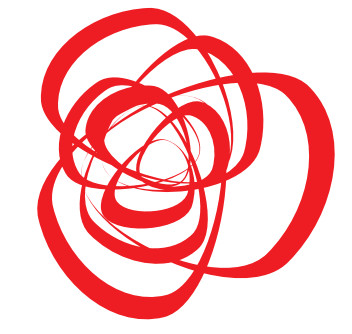"Everything Hungarian is Contained in Petőfi” - 15 March Holiday Speech Summary
- 16 Mar 2023 6:40 AM
- Hungary Matters

In a speech in front of the house where Petőfi was born 200 years earlier, Orbán said “all Hungarians have a little bit of Petőfi in them, and everything Hungarian is contained in Petőfi”.
He said the life of the revolutionary, whose poems every Hungarian has learnt to recite as schoolchildren, was “a 26-year trajectory through the Hungarian heavens that started deep in Hungary and ended on a trail of stars”.
March 15 marks the “birth of Hungarian freedom”, and the “march of freedom” begins in Kiskőrös, he added. Hungarians consider Petőfi their greatest poet because he “contains both Hungarian fate and Hungarian genius”, he said, noting that his works have been translated into more than 200 languages.
Petőfi “died as he wrote: as an apostle of global freedom, in a battle for Hungary’s freedom”, he added. He said Petőfi had delivered an answer to the question of what gives greater meaning to finite life and to country and quoted from the poet’s National Song: “Shall we be slaves or men set free? That is the question, answer me!”
Orbán: 'We Will Never Allow the Flag of Freedom to Be Twisted Out of the Hands of Hungarians'
“The great march of Hungarian freedom, though it has sometimes taken some twists and turns and sometimes even run into dead ends over the past 200 years, is still going strong today,” Prime Minister Viktor Orbán said, marking the 175th anniversary of the 1848-49 revolution and freedom fight at the birthplace of Hungary’s national poet, Sándor Petőfi, in Kiskőrös, in the south of the country, on Wednesday.
“And Sándor Petőfi is still with us in that march today,” he added. “We see him rebel when strangers want to tell Hungarians how to live. We see him turning against the powers of the world who want to reintegrate Hungarians into a European superstate,” he added.
Orbán also noted that the poet had prefaced his “Twelve Points” of the Hungarian revolutionaries with “Let there be peace”. “We owe it to him, and that is why we will never allow the flag of freedom to be wrenched out of the hands of Hungarians,” he said.
Szijjártó: Hungarians 'Still People of Freedom'
Hungarians are a “people of freedom” and can turn into “freedom fighters” if necessary, Foreign Minister Péter Szijjártó said in Győr, in north-western Hungary, marking the 175th anniversary of the 1848-49 revolution and freedom fight on Wednesday.
Accepting the title of honourary citizen of the city, Szijjártó said Hungary had emerged from all crises of the past 13 years stronger than before. The country delivered a “Hungarian response” to every ordeal, neither seeking “guidelines” nor trying to “meet expectations”, but “looking only to national interests”, he added.
Hungary “climbed out of a hole” when the economy reached a low point because of the global financial crisis thanks to national cooperation, and has since built one of the fastest-developing economies in Europe, he said.
Szijjártó said Hungary had been “overrun by migrant hordes who showed no respect for people living here” eight years earlier, while many in Europe wanted to strip the country of its right to decide “with whom we want to live”.
Even then, Hungary didn’t sacrifice its freedom, but protected its borders, its citizens and “the right to decide with whom we’re prepared to live together in this beautiful country”, he said.
During the pandemic, Hungary resisted external pressure, insisting that “saving lives is not a matter of politics or ideology”, he added. He said “great powers” have tried to “press” Hungary into the war, adding that nobody can “drag” the country into a war that “is not ours”.
He said Hungary had also preserved its freedom with regard to which measures it decides to support or not support in Brussels. The government is leading the country “in the spirt of 1848”, he added.
Szijjártó said that since taking a seat on the Gyor municipal council 25 years earlier, at the age of 20, the city had become a “bastion of the automotive industry”, while the local Széchenyi István University had become an “intellectual hub” for the country.
Gulyás: Independence, Freedom 'National Minimum'
Hungary’s freedom and independence are the foundation of real and durable national unity, and so it is the “national minimum”, the head of the Prime Minister’s Office said in Veszprem, in western Hungary, on Wednesday, marking the 175th anniversary of the 1848-49 revolution and freedom fight.
Love of country and freedom are key to national unity, and a nation can persist as long as “we are ready to make sacrifices for our freedom and independence,” Gulyás said.
During the revolutions sweeping Europe 175 years ago, the freedom rooted in civic rights was a common European goal, he said. The movement demanded equal rights for nations and their citizens, as well as independence, constitutional institutions, responsible governments, free press and the end of serfdom, and equality before the law, he said.
After “that flame was trampled”, Hungary was the only one to fight the overwhelming force of an empire, he said. Although the freedom fight was later drowned in blood, it strengthened Hungarians’ yearning for freedom, he said.
The message of 1848 is that individual freedom does not exist without the freedom of the community, “a shackled nation doesn’t have free citizens”. Hungarians wish the same things they have wished for since state founder St Stephen: to be an independent nation that “can decide its own fate, the issues of its country and its alliances,” he said.
The European environment is “often hostile today, at a time when there is a war in a neighbouring country, because we want to preserve the living, organising values of God, homeland and family, at a time when the political expectation is to deny them,” he said.
Kövér: 'We Are Ready to Protect Our Freedom'
“We are ready to protect the freedom that created and feeds the modern Hungarian nation and civic Hungary, and which the revolutionaries of 1848-49 fought for under the leadership of Lajos Kossuth,” Speaker of Parliament László Kövér said on Wednesday.
Kövér told an event marking the 175th anniversary of the revolution in Monok, in northeast Hungary, where Kossuth was born, that his democratic principles as Hungary’s governor and first finance minister were an inspiration not only in Hungary but also in Europe.
Zsófia Koncz, parliamentary state secretary and ruling Fidesz MP of the region, said that Kossuth had made the meaning of freedom and democracy known around the world.
Ministers Mark March 15 National Holiday
In today’s Europe, advocating for peace takes courage, Culture and Innovation Minister János Csák said at an event marking the anniversary of the 1848-49 revolution and freedom fight in Budapest on Wednesday.
In his speech at the National Museum, Csák said “remembering our heroic predecessors, we proclaim proudly that Hungarians have been the people of freedom for the past 1,100 years”.
Hungarians are the “survivors or even winners of history, not its victims”, because they have withstood all hardships and continue to prosper, he said. In the shadow of war, the importance of peace cannot be overstated, he said. “If this war is unleashed, it could destroy everything, even Europe.”
At a commemoration in Szombathely, in western Hungary, Defence Minister Kristóf Szalay-Bobrovniczky said Hungarians are again living “in an age of peril”. Addressing the event organised by the Klapka György Equestrian Guard and Heritage Preservation Association, Szalay-Bobrovniczky said Hungary must stay out of the war in neighbouring Ukraine, but “keep the powder dry”.
Although Hungary “stands on the side of peace”, it is building an army that is “modern and uses the latest technology”, while preserving Hungarian soldiers’ “ancient virtues”, such as those of the hussars who fought in 1848-49, he added.
Finance Minister Mihály Varga told an event in Cluj-Napoca (Kolozsvár), in north-western Romania, that the revolution of 1848 marked the birth of institutional Hungarian freedom. He said the sacrifices of the heroes of the revolution could be reciprocated by strengthening and guaranteeing the nation’s independence and self-determination for future generations.
“When we celebrate 1848, we Hungarians also celebrate a diverse Europe founded on autonomous nation-states,” the minister said. “We must defend our freedom ourselves, just as we had to in 1848 and after the two world wars, and as we must do so today on new fronts.”
Addressing an event in Sfântu Gheorghe (Sepsiszentgyörgy), Romania, Justice Minister Judit Varga said Hungarians “say no to the concept of European empire” and are “insistent on keeping their freedom won through the sacrifice of blood”.
Varga said the interests of Hungarians living inside the country and outside of its borders “come first”. She warned that a “hegemony of opinion” is taking shape in Europe and said the European Union is “uniting on the matter of self-censorship, not diversity”.
She added that Brussels’ response to the war in Ukraine has “failed”. Hungarians today, as their predecessors in 1848, want peace, freedom and understanding, she said.































LATEST NEWS IN current affairs